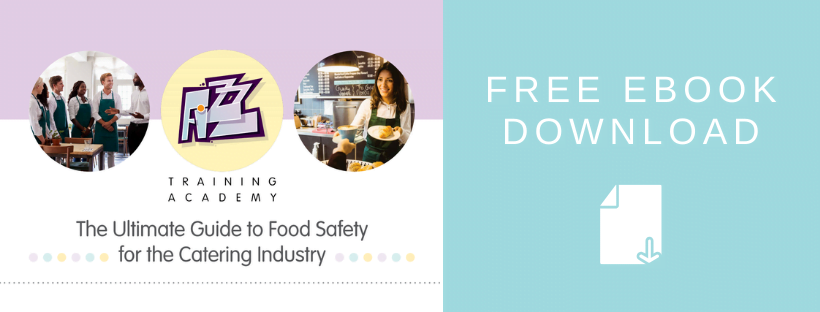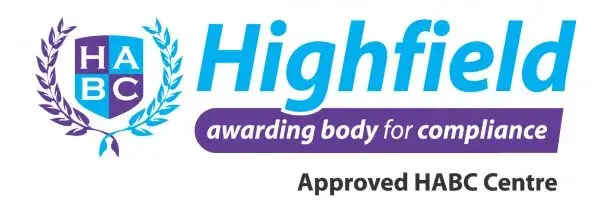Food safety compliance is an absolute necessity for those working with food in any capacity, whether it be in catering, the restaurant trade or behind the scenes. If food-handling staff are not properly trained, oversights can be made that might have severe consequences.
Customers must have all the information required to make a safe decision regarding sampling, purchasing and consumption. This is something that isn’t only ‘required’ by law but is also incredibly important from a customer service perspective.
“Reliable information could not only potentially save a life but will also help put your customers at ease.”
Anyone handling food needs to be trained to a relevant food safety standard. This not only ensures they understand the importance of hygiene and customer safety but that they have the right amount of confidence and knowledge to be able to make customers feel at ease.

In the build-up to the launch of Natasha’s Law, it’s more important than ever that your staff are clued-up on their allergy awareness and understanding. Because reliable information could not only potentially save a life but will also help put your customers at ease.
The customer is always right
For any customer with an allergy, whenever they go out for a meal or even when they head to a local fast-food chain for a snack, their allergy will always be on their mind. For these customers, the first thing they are looking for in their servers is the confidence that they know what they’re talking about.
If they ask for allergen information and the server seems unsure, for example, they are likely to take their business elsewhere. That’s one of the biggest hurdles any customer will face – being greeted by somebody that doesn’t inspire them with confidence. But what does this mean for food-handlers?
Knowledge is power
All food-handling staff (both in front of and behind the scenes, so to speak) need to know not only what all potential allergies there are, but just how dangerous they can be, as well as what is actually in the food.
Of course, it’s preferable for a member of staff to admit they don’t know something (and to go and check with someone who does) than to blindly press on and risk exposing somebody to something that could harm or even kill them.
- You may like: Understanding food safety and allergens
It’s not uncommon for a waiter or waitress in a restaurant to go and ask the chef, for example, when quizzed with ingredient or allergen information. However, if they are able to answer those questions accurately and confidently on-the-spot, it will reflect very well indeed on the member of staff and the brand.
Communication and contamination
The two major things to consider in any food-handling situation when it comes to potential allergens are communication and separation – the ability for staff to communicate the correct information and the knowledge to keep allergenic food separate from other food.
There are obviously plenty of other things to note (making sure hands are clean and that surfaces are disinfected, for example) but most facets of the situation can be neatly divided into these two categories.
“Take the customer and their allergy seriously and it will inspire confidence.”
Communication – A customer can’t see what’s going on in the kitchen and they can’t see what was going on when the food was prepared, but they can gain all the confidence they need that everything is above board from the person they’re speaking to. If the person they are talking to immediately knows the answers to their questions and takes the customer and their allergy seriously, it will inspire confidence. Of course, there will rarely be any reticence for a customer with an allergy to ask the question; the discomfort will come from the response. So, ensuring staff members are prepared and know how to respond to customers in a reasonable and comforting manner is absolutely key. Otherwise, you run the risk of alienating potential customers and losing business.

Contamination – Even food that doesn’t have allergens in it runs the risk of being contaminated by other foods that do. Contamination is something all food-handlers must be taught to avoid at all costs. At our sister company WDS, for example, we don’t demonstrate peanuts because of just how dangerous they can be and how easy it is for contamination to occur. In this regard, there are considerations to be made not only by food-handlers but by the planners and the managers behind the scenes, because contamination is easier to avoid if potentially dangerous foods are segregated at all times.
Allergy or intolerance?
Working with food often means keeping a lot of plates spinning at any one time and focusing too much on one plate can be to the detriment of others. It can also come across as ‘too much information’ sometimes. Indeed, customers would probably prefer to hear about what makes the food so good rather than what’s in it that could potentially kill them! They won’t be selling a product based on how many allergens it has or hasn’t got, after all. So the real key is in finding that balance: Making your questions quick and unobtrusive, but confident enough to be heard and understood.
“You should never be blasé about a customer’s dietary requirements.”
There are also customers who might be intolerant to something but are unsure. You should never be blasé about a customer’s dietary requirements as gluten and dairy reactions can be quite severe. Still, being able to decipher between intolerant and allergic customers is something that can’t necessarily be taught overnight. Training certainly helps though.
It’s all about the training
As the old saying goes – “failing to prepare means preparing to fail.” Training is all about giving your staff members the right knowledge and the right skills to be able to put customers at ease and facilitate a comfortable experience that is without incident.
Food safety and hygiene training should always be prioritised – particularly in a post-Natasha’s Law world. Arm your staff with the knowledge and confidence they need with Buddy Academy courses.


